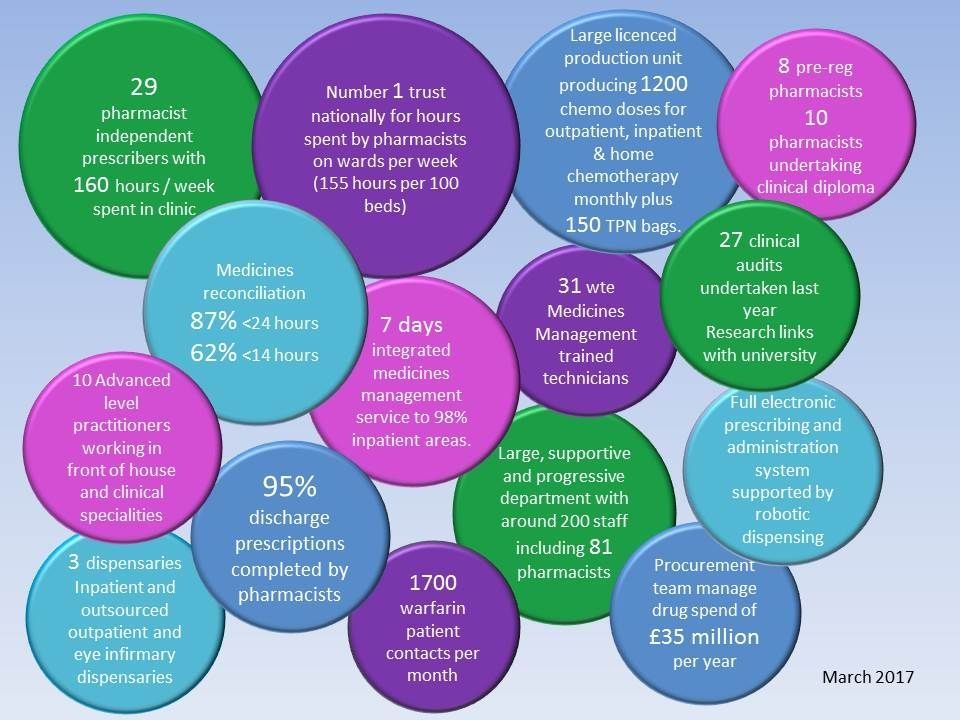Our clinical service is centred around the Integrated Medicines Management (IMM) service which is a term used to describe the clinical pharmacy service that improves the safety and quality of care at key points of the patient’s stay.
The following video describes how this is put into action to benefit patients.
The aims of the IMM service are
- to ensure the patient receives the right drug at the right dose at the right time
- to prepare medication ready for discharge to reduce the amount of time patients have to wait for their medication
- to improve patient’s knowledge of their medication and improve communication with GPs and community pharmacy about any changes that have occurred during an inpatient stay.
- to promote the safe and cost effective use of medicines.



